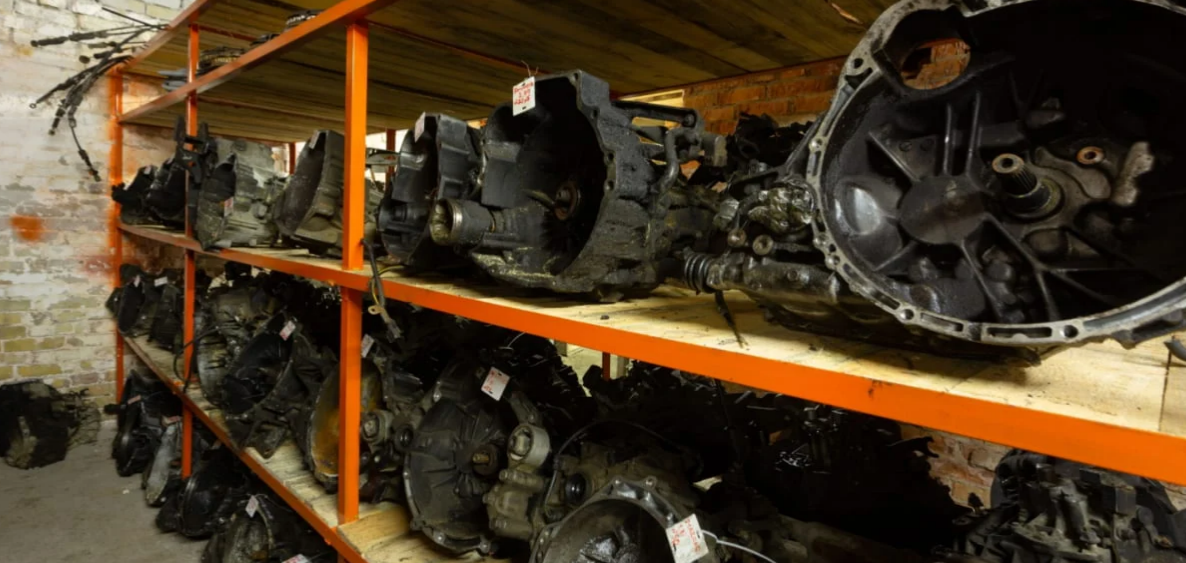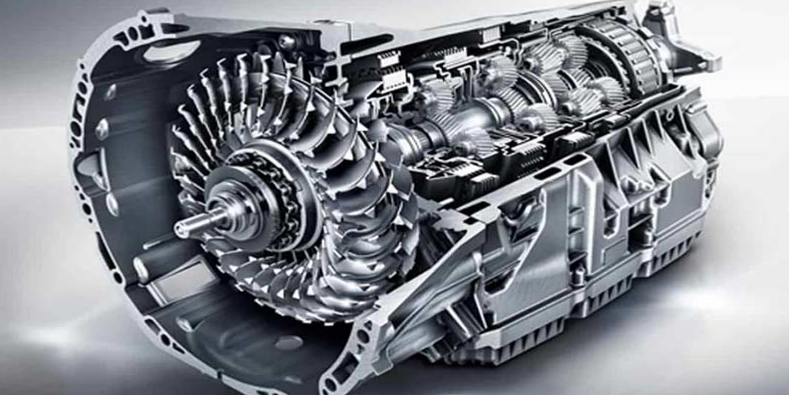Transmissions are expensive to replace due to the complexity of parts, labor-intensive process, and the cost of the components.
Components of a Transmission System
The transmission system is one of the most critical components of a vehicle, responsible for transmitting power from the engine to the wheels and allowing the vehicle to move forward and backward. It consists of several key components, each with a specific function.

Gears
Gears are the most fundamental components of a transmission system. They are responsible for changing the speed and torque of the vehicle. There are different types of gears, including the input, output, and intermediate gears. The input gear is connected to the engine, while the output gear is connected to the wheels. Intermediate gears are used to change the direction of rotation and the speed of the vehicle. The gear ratio is the ratio between the number of teeth on the input and output gears, which determines the speed and torque of the vehicle.
Clutches
The clutch is a mechanical device that engages and disengages the power transmission from the driving shaft to the driven shaft. In simple terms, it connects and disconnects the engine from the wheels. When the clutch is engaged, power is transmitted from the engine to the wheels, and the vehicle moves. When the clutch is disengaged, the engine and the wheels are disconnected, allowing the vehicle to stop or change gears.
Fluid
Transmission fluid is a special kind of oil designed for transmission systems. It serves several functions including lubricating the gears and clutches, cooling the transmission, and helping to transmit power from the engine to the wheels. It is essential to check and replace the transmission fluid regularly to ensure the proper functioning of the transmission system.
Torque Converter
The torque converter is a fluid coupling device that transmits power from the engine to the transmission. It consists of three main components: the impeller, the turbine, and the stator. The impeller is connected to the engine, and the turbine is connected to the transmission. The stator is placed in between the impeller and the turbine and helps to increase the torque by redirecting the fluid flow.
Control Module
The transmission control module (TCM) is an electronic component that controls the operation of the transmission. It receives signals from various sensors in the vehicle, processes the information, and then sends signals to the transmission to shift gears, engage or disengage the clutch, and perform other functions. Proper functioning of the TCM is crucial for the optimal performance of the transmission system.
Each of these components plays a vital role in the functioning of the transmission system. Regular maintenance and timely replacement of damaged parts can help ensure the longevity and performance of the transmission.

Factors Affecting the Cost of Transmission Replacement
Replacing a transmission is a costly repair that can vary significantly in price. Several factors can affect the overall cost of transmission replacement.
Labor Cost
Labor cost is one of the major factors affecting the cost of transmission replacement. The labor cost depends on the hourly rate of the mechanic and the complexity of the work. A transmission replacement is a labor-intensive task that requires specialized skills and tools. On average, labor costs can range from $500 to $1,200, depending on the location and the mechanic’s expertise.
Parts Cost
The cost of the parts is another significant factor that affects the cost of transmission replacement. The cost of a new transmission can vary widely based on the make and model of the vehicle and the type of transmission (manual or automatic). On average, a new transmission can cost anywhere from $1,800 to $3,500. However, purchasing a rebuilt or remanufactured transmission can be a more cost-effective option, with prices ranging from $1,200 to $2,800.
Type of Transmission (Manual/Automatic)
The type of transmission also affects the cost of replacement. Manual transmissions are generally less expensive to replace than automatic transmissions. This is because manual transmissions have fewer parts and are less complex than automatic transmissions. On average, replacing a manual transmission can cost between $1,500 and $3,000, while replacing an automatic transmission can cost between $2,000 and $4,000.
Vehicle Make and Model
The make and model of the vehicle also play a significant role in determining the cost of transmission replacement. Luxury vehicles and high-performance cars usually have more complex transmission systems, which can increase the cost of replacement. For example, replacing the transmission of a high-end luxury car can cost upwards of $5,000, while the cost for a standard sedan may be around $2,000 to $3,000.
In conclusion, the cost of transmission replacement can vary significantly based on several factors, including the labor cost, parts cost, type of transmission, and vehicle make and model. It is essential to get a detailed estimate from a reputable mechanic before proceeding with the transmission replacement. Additionally, it may be worth exploring other options such as rebuilding or remanufacturing the transmission, as they may be more cost-effective in the long run.
Comparison of Costs: Repair vs Replacement
The transmission is one of the most critical components of a vehicle, and it can be quite expensive to repair or replace. However, it is essential to understand the costs involved in both repair and replacement to make an informed decision.
Cost of Repairing a Transmission
Repairing a transmission involves fixing specific components rather than replacing the entire transmission system. The cost of repairing a transmission can vary significantly based on the extent of the damage and the make and model of the vehicle. On average, minor repairs such as fixing a transmission leak or replacing a solenoid can cost between $150 and $400. More extensive repairs, such as rebuilding the transmission, can cost anywhere from $1,500 to $3,000.
Cost of Replacing a Transmission
Replacing a transmission involves removing the old transmission and installing a new or remanufactured one. The cost of replacing a transmission can vary based on several factors, including the make and model of the vehicle, the type of transmission (manual or automatic), and the labor cost. On average, replacing a transmission can cost between $2,000 and $4,000 for most standard vehicles. However, the cost can be significantly higher for luxury or high-performance vehicles, which can exceed $5,000.
When is Replacement Necessary?
Transmission replacement is usually necessary when the transmission is severely damaged and beyond repair. Common signs of a failing transmission include slipping gears, grinding noises, transmission fluid leaks, and the inability to shift gears. If the vehicle exhibits any of these symptoms, it is essential to have the transmission inspected by a professional mechanic. They can determine whether repair or replacement is the most cost-effective option. Additionally, if the cost of repairing the transmission exceeds the value of the vehicle, it may be more economical to replace the entire transmission.
In conclusion, the cost of repairing or replacing a transmission can vary significantly based on several factors. It is essential to get a detailed estimate from a reputable mechanic before proceeding with any repairs or replacements.
Tips to Reduce Transmission Replacement Cost
The cost of replacing a transmission can be quite high, but there are several ways to reduce the overall cost. Here are some tips to help you save money on transmission replacement.

Regular Maintenance
Regular maintenance is the key to prolonging the lifespan of your transmission and avoiding costly repairs or replacements. It is essential to check and replace the transmission fluid regularly, as recommended by the vehicle manufacturer. For example, fixing a transmission fluid leak early on can cost around $150 to $200, whereas replacing the entire transmission can cost between $2,000 and $4,000.
Buying Rebuilt or Remanufactured Transmission
Purchasing a rebuilt or remanufactured transmission can be a more cost-effective option than buying a brand new one. On average, a rebuilt transmission can cost between $1,200 and $2,800, whereas a remanufactured transmission can cost between $1,300 and $3,400. Both options are usually less expensive than buying a new transmission and often come with a warranty.
Shopping Around for Best Prices
It is always a good idea to get quotes from several different mechanics or transmission repair shops before proceeding with any repairs or replacements. Prices can vary significantly from one shop to another, and shopping around can help you find the best deal. Additionally, it may be worth exploring online retailers or auto parts stores for transmission parts, as they may offer lower prices than brick-and-mortar stores.
In conclusion, while the cost of replacing a transmission can be quite high, there are several ways to reduce the overall cost. Regular maintenance, buying a rebuilt or remanufactured transmission, and shopping around for the best prices can all help you save money on transmission replacement. Additionally, it is essential to get a detailed estimate from a reputable mechanic before proceeding with any repairs or replacements to avoid any surprises later on.
